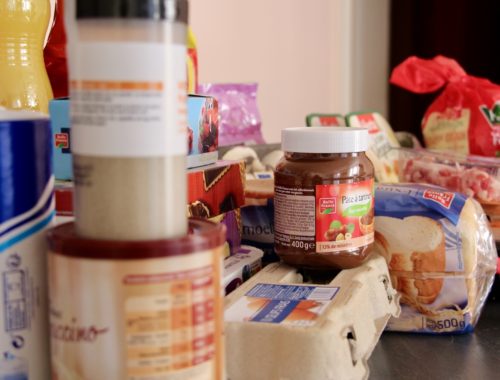
Why TAPIF Is About More Than Just Teaching English
The Teaching Assistant Program in France (TAPIF) gives American and Canadian participants the amazing opportunity to teach English in French schools for an academic year. Maria and I were TAPIFers during the 2019-2020 school year, and our experience made it clear to us that although teaching English abroad is the basis of TAPIF, the program is really about so much more.
Beyond a monthly stipend of 785 €, what do assistants gain from TAPIF? Moreover, besides a bunch of young English teachers, what does France get in return?
We reflected on our time as English teachers in France and want to share our thoughts about why TAPIF can’t be summed up as a simple teaching gig.
What You Get From Doing TAPIF
So, what exactly do TAPIFers get out of the program besides a paycheck? TAPIF delivers professional and personal development that will benefit assistants for a lifetime.
Work Experience Abroad
To start, TAPIF assistants get to add work experience abroad to their resume. Spending time abroad is a privilege afforded to relatively few people, and working abroad is even more unique. Working in France as an English teacher develops hard and soft skills that employers in all sectors will appreciate. In our globalized world, an internationally-minded employee brings important insight to the table. From improving your French-language expertise and public speaking abilities to widening your comfort zone and increasing your adaptability, TAPIF shapes assistants into well-rounded professionals.
International Connections
Teaching in France allows you to make connections with people that you may have never otherwise met. Your new friends and colleagues can represent a wealth of opportunities for you as a foreigner, including the chance to learn about French culture first-hand or even the possibility of landing a new job. Furthermore, forming relationships with people whose lives differ greatly from your own will open your mind and give you a whole new perspective. Increasing your personal and professional network during TAPIF is a real asset that makes participating more than worthwhile.
What France Gets From Hosting TAPIFers
If France wasn’t benefitting from welcoming anglophones into their schools, TAPIF wouldn’t exist. Yet, what difference can a small group of young people with varying levels of teaching experience really make?
Cultural Exchange
Whether assistants realize it or not, English proficiency is but a tiny fraction of what they are really teaching to students in France. In our opinion, cultural diplomacy, defined by American political scientist and author Milton C. Cummings as the exchange of ideas, information, art, and other aspects of culture among nations and their peoples in order to foster mutual understanding, is TAPIF’s raison d’être. By breaking harmful stereotypes, recounting personal experiences, and sharing aspects of their homeland, TAPIFers’ daily presence in French schools broadens students’ horizons.
Cummings goes on to say that cultural diplomacy can take another form.
But “cultural diplomacy” can also be more of a one-way street than a two-way exchange, as when one nation concentrates its efforts on promoting the national language, explaining its policies and point of view, or “telling its story” to the rest of the world.
By encouraging anglophone assistants to learn French and giving them a peek into the French education system, TAPIF is a method by which France acquaints foreigners with French culture. On the whole, TAPIF is clearly a vector of cultural exchange, which benefits France in more ways than one.
Soft Power
Soft power is a method of persuasion used by countries in their relationships with other actors on the international scene. According to American political scientist Joseph Nye, soft power is based in the attractiveness of a country’s culture, political ideals, and policies. Because over 1,500 Americans and Canadians come to know and love France during their time as assistants each year, we believe that TAPIF enhances France’s soft power. Researchers Aidarbek Amirbek and Kanat Ydyrys, analyzing Nye’s position on soft power and higher education, point out that international students return to their home countries as “effective transmitters” of their host countries’ language and culture. Much like students who study abroad, TAPIF assistants leave the program as connoisseurs and ambassadors of the French way of life.
Look no further than how the TAPIF website describes the purpose of the program.
The program’s goal is to strengthen foreign-language instruction in French schools by establishing a native speaker presence, while also providing young educators around the world with initial international teaching experience and first-hand knowledge of French language and culture.
As a result, TAPIF is an influential mechanism that molds North American youth into lifelong Francophiles, thus increasing France’s soft power on the global stage.
While TAPIF is indeed a program rooted in foreign language education, it is obviously so much more than that. TAPIF assistants depart with a glowing resume, long-lasting connections, and an unshakeable affinity for all things French. Through TAPIF, France upgrades their students’ English proficiency, fosters mutual cultural competence, and expands French international influence around the world. You might think that TAPIF is merely a ticket to a fun year abroad, but it’s actually a powerful tool for both anglophone participants and French society.
What do you think makes TAPIF such a special opportunity? Let us know in a comment below.
You May Also Like

What is Teaching in France Really Like? TAPIF Diary #2
December 25, 2019
Budgeting For Our Year With TAPIF
March 4, 2020

